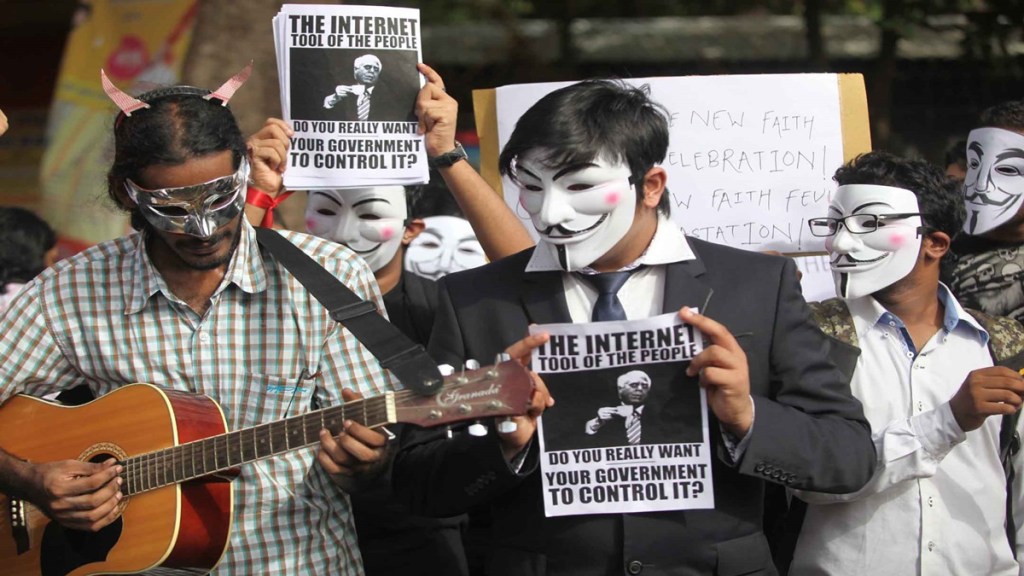Old Ramanathapuram district in Tamil Nadu (now divided into three: Ramanathapuram, Sivagangai and Virudhunagar) is a district with multiple water bodies — natural lakes, man-made tanks, irrigation tanks (kanmois, in Tamil), drinking water ponds (Oorani), tanks for cattle and sheep and for washing (Kulam), and wells. Old Ramanathapuram was a dry-land district that received little rain. Most agricultural land was unirrigated and monsoon-dependent. The people and their rulers had no choice but to dig and dig and dig, and create water bodies. They did that round the year. The water bodies were the life-line for both people and animals.
As the population grew and new human settlements became imperative, the casualty was the water body. The time-tested tactic was ‘creeping encroachments’. A few huts will spring up on the edges of a water body; more will be erected in the following months. As encroachments spread, the water body began to recede, until one day it vanished. Like when the sea advanced, the coastline receded. It is called erosion.
Also read: Across the aisle by P Chidambaram: The rhetoric and the reality
No Snatching, but Erosion
The two words — encroachment and erosion — apply to freedom too. In a free country, freedom will not be snatched at midnight. It will be eroded — silently, furtively, insidiously — until you know one day that you are no longer as free as you were some months ago. And when you realise that you have lost your freedom, it will be too late to retrieve what you have lost.
Don’t live under the illusion that you cannot lose your freedom. Just count the nations that got freedom at about the same time as India did in 1947 and in the following decade. And now count how many of them have lost their freedom not to colonisers but to native autocrats. Many of those countries still have an Election Commission and elections; a Judiciary and judges; a Parliament and MPs; a Cabinet and ministers; and newspapers and journalists. But when you visit the country or live in it, you know it is not a free country. Such countries have the trappings of a free country, but they are authoritarian states. The V-Dem Institute of Sweden classifies countries as Liberal democracy, Electoral democracy, Electoral autocracy and Closed autocracy. In 2021, the Institute classified India as an ‘Electoral Autocracy’. It is a badge of shame.
Successive Amendments
Articles 14 and 19(1)(a) and (g) of the Constitution protect the freedoms of the individual as well as of the institution called the Press. Mark April 6, 2023. It was the day on which the erosion of freedom of the Press got the sanction of a doubtful law. During the Emergency (1975-1977), freedom of the Press was snatched overnight. (It was terribly wrong and Indira Gandhi apologised for the Emergency.) On April 6, the government amended the Information Technology Rules, 2021. Rule 3(1)(b)(v), after amendment, reads as follows (the amendment is in bold italics):
“3(1) Due diligence by an intermediary: An intermediary, including a social media intermediary, a significant social media intermediary and an online gaming intermediary, shall observe the following due diligence while discharging its duties, namely:
(b) the intermediary shall… make reasonable efforts to cause the user of its computer resource not to host, display, upload, modify, publish, transmit, store, update or share any information that, —
deceives or misleads the addressee about the origin of the message or knowingly and intentionally communicates any misinformation or information which is patently false and untrue or misleading in nature or, in respect of any business of the Central Government, is identified as fake or false or misleading by such fact check unit of the Central Government as the Ministry may, by notification published in the Official Gazette, specify.”
The mischief is obvious. The amended rule applies to ‘any business of the central government’. There will be a ‘fact check unit of the central government’. That is a euphemism for an Official Censor. The censor is empowered to identify the news as ‘fake or false’. That decision will be purely subjective with no judicial oversight. Once the news is identified as fake or false, newspapers, TV channels and social media outlets shall ‘cause the user of its computer resource’ to remove the news.
Also read: Across the aisle by P Chidambaram: Putting lipstick on the numbers
Before it is Gone
I shall not burden this column with the screaming legal infirmities in the amended rule. Suffice to say, the government is the prosecutor, jury and judge of what is fake/false and what is not.
The amended rule has a history. The Information Technology Rules made in 2021 imposed onerous obligations on intermediaries. The Rules have been challenged in various courts. On October 28, 2022, the government notified the Information Technology (Intermediary Guidelines and Digital Media Ethics Code) Rules, 2022 and made the first significant amendment to Rule 3(1)b)(v). Now, the notification of April 6, 2023 has further amended Rule 3(1)(b)(v). This is what I call creeping erosion of freedom.
Let the Courts decide whether the amended Rules are legal or not under the Constitution and the laws. You must look at the non-legal and freedom-related aspects:
Should news be censored in a free, democratic country?
* Would you accept a censor of news?
* Should the censor be a government-appointed censor?
* Should the censor decide the question subjectively?
* Will such government action not create a “chilling effect” on freedom of speech and expression?
A precious right is being eroded. It is going, going……. Wake up before it is gone.


